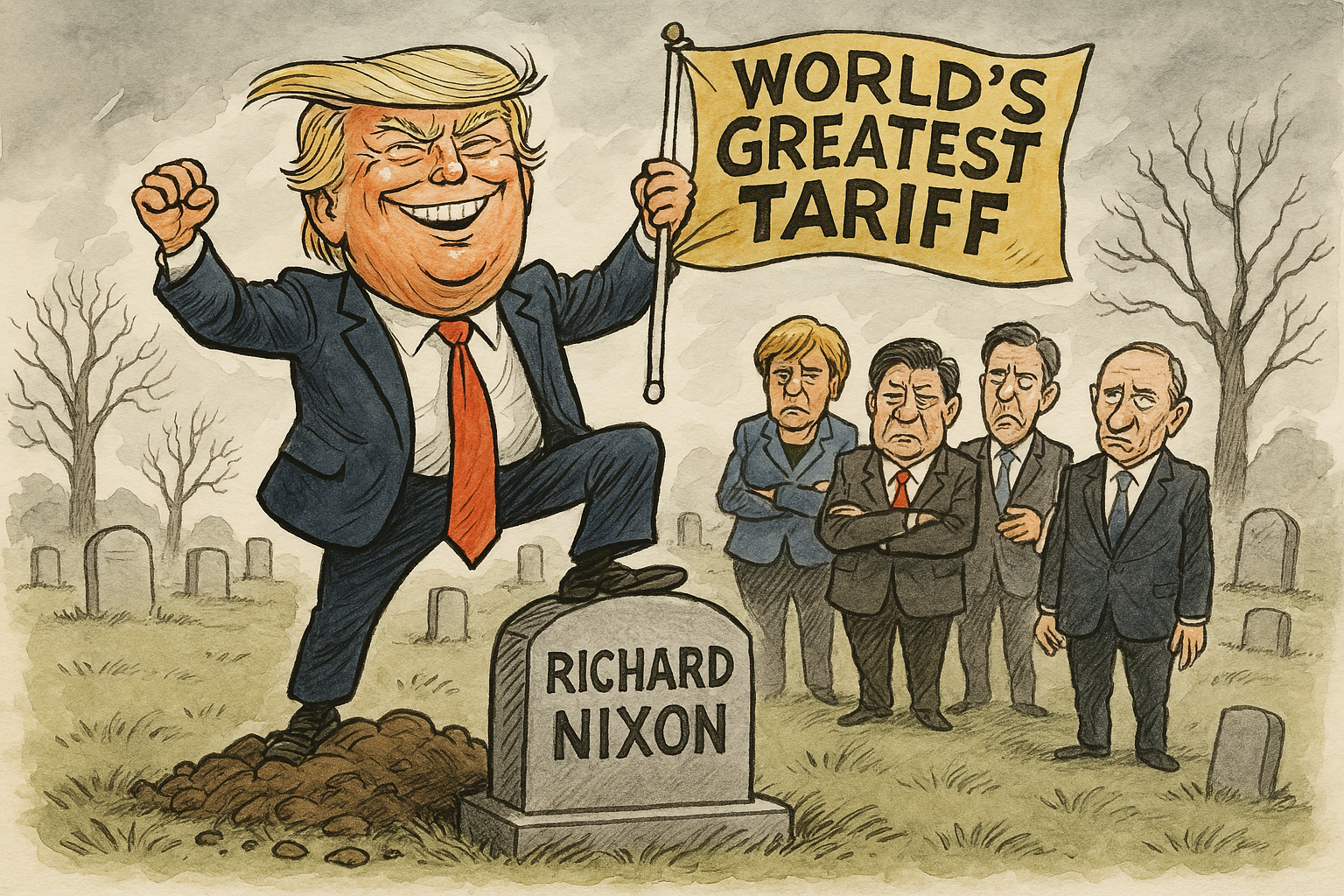Last week, amid great fanfare, Trump unveiled sweeping tariffs, presenting America’s new import-tax regime in characteristically crude terms. He said, “America is being ripped off…we’re not going to have an America in 10 years if it keeps going like this. We’re a debtor nation, and we have to tax, we have to tariff, we have to protect this country.”
The stark reality is that since the post-war era, the United States has engineered the rules-based international order (RBIO) to funnel global wealth into the hands of its elite. Yet at home, this system has been plagued by deep-rooted flaws – persistent trade imbalances, soaring debt, widening income inequality, crumbling public services, deindustrialization and political gridlock. Abroad, the U.S. has repeatedly intervened to shore up the dollar, rescue a fragile global financial system from the fallout of its own speculative excesses and launch military campaigns to suppress dissents and secure vital resources.
The last significant revision of the RBIO occurred during Nixon’s reign amid America’s disastrous Vietnam War, mounting foreign debt and erosion of the dollar’s global reserve status. Nixon’s restructuring of the RBIO unleashed a fresh wave of economic liberalization, global trade expansion and reinforced dollar dominance worldwide. The dollar solidified its role as the essential global currency, rendering debt concerns irrelevant as long as it remained dollar denominated. Domestic industries and resource sovereignty became outdated relics of the previous version of RBIO. America could now consume without producing, impose conditions without compromise and dismiss the tangible value of resources and manufacturing altogether.
However, this iteration of the RBIO proved unsustainable, as the US grappled with mounting political, security and economic challenges. Domestically, the political system grew increasingly dysfunctional, compelling successive presidents to rely heavily on expanded executive authority to achieve their agendas. American democracy increasingly resembled outright dictatorships, under the guise of ‘liberation from tyranny’.
On the economic front, the Nixonian formula, lit by the fire of neo-liberalism, gutted America’s industrial heartland, dismantled local economies and condemned millions to poverty and prolonged hardship.
Abroad the U.S. military, once the enforcer of the RBIO, increasingly appeared overstretched and ineffective. From Iraq to Afghanistan, then later in Syria, Libya and Ukraine, military engagements failed to produce decisive victories and spawned a wellspring of global anti-Americanism. Moreover, America’s unwavering support for Israel’s genocidal actions in Gaza swiftly eroded its credibility as an impartial arbiter of justice, transforming its global image into that of an international bully.
Worst of all, America’s repeated adjustments to the RBIO inadvertently facilitated the rise of its greatest peer competitor in China, the exact outcome the RBIO was designed to prevent. The once-effective Nixonian fix had now become a profound strategic liability.
In this context, Trump’s tariffs signify something far more consequential – a root-and-branch overhaul of the RBIO and the dismantling of the post-Nixon economic consensus. His emerging strategy appears to rest on several key pillars:
1. Unplugging America from the Nixon-era model of globalization and reindustrializing the forgotten heartland to restore jobs, dignity, and hope for working-class Americans.
2. Strategically devalue the dollar lowering its value without relinquishing its global dominance through a carefully managed mix of incentives and coercive diplomacy.
3. Inflate the national debt and maintain low borrowing costs to fuel defence spending, while shifting the financial burden of global security onto allies.
4. Reassert U.S. dominance by extending the Monroe Doctrine northward—seeking strategic control over Greenland and compelling greater compliance from Canada. This will enable the US to counter Russian and Chinese influence in the artic.
5. Reshape Europe’s political landscape by empowering far-right movements that are ideologically aligned with Trumpism, isolate China internationally and rollback woke values at home.
In this way, Trump seeks to reboot the RBIO and revive Pax Americana, allowing the wealthy elite to continue their global exploitation under a fresh facade of American supremacy. In our view, however, this grand reset is destined to fail once again.
The Centre for Muslim Political Analysis, Strategy, and Solutions (or COMPASS) is a thinktank which focuses on developing long term thinking, strategy and policy to support the progress of the Muslim world.

